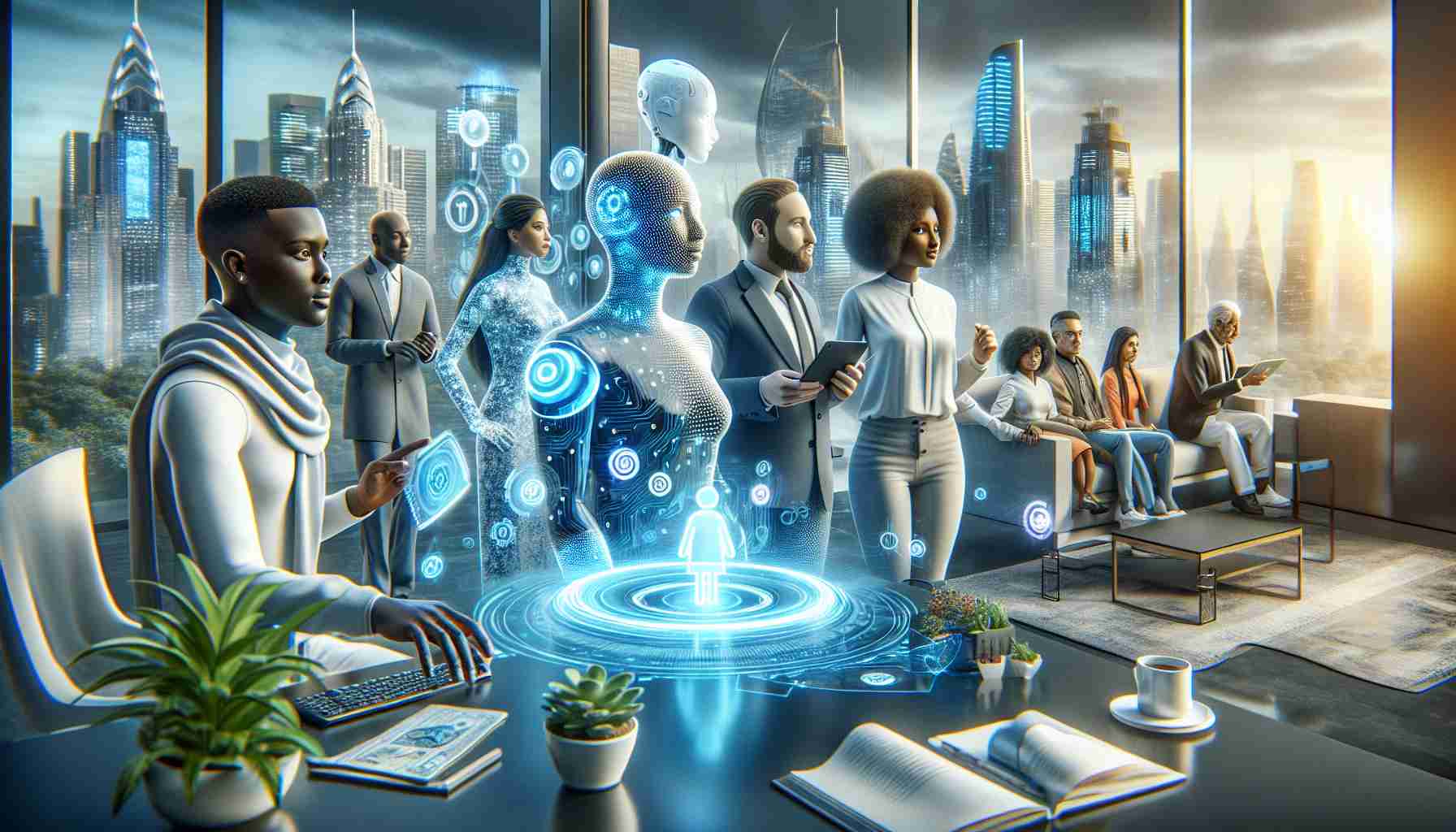Embracing AI: A Future of Enhanced Skill Development and Opportunities
As the world navigates through challenging economic and geopolitical landscapes, employees are increasingly advocating for better working conditions and pay. Amidst this backdrop, innovative technology like artificial intelligence (AI) is poised to dramatically reshape our work environment.
Renowned Futurist Initiates New Visionary Dialogue
Frank Diana, with his prominent status as Principal Futurist at TCS, leverages his extensive leadership background to advise on business, societal, and economic developments. His insights suggest that we are on the brink of a transformative era, reminiscent of the early 20th-century innovation surge that redefined labor and productivity. According to Diana, AI is the modern equivalent of the assembly line, set to enrich jobs by alleviating monotonous tasks and allowing for increased focus on skill-centered work.
The Impactful Four: AI-Driven Changes to the Workforce
Diana anticipates several significant changes brought by AI:
1. The Evolution of Working Hours
AI will redefine jobs around industry-specific skills, lessening the time spent on general tasks. This evolution promises a more rewarding work experience and the potential to achieve a healthier work-life balance. Younger generations’ desire for flexibility might accelerate the adoption of shorter work weeks and similar benefits offered by employers.
2. Regulation for Security
As the cultural perspective on work shifts, so might government policies to ensure ethical AI usage. Regulations could be vital in preventing economic disparities by promoting growth that is inclusive of all citizens.
3. New Career Trajectories
The demand for new skills will pave the way for novel career paths, with AI engineers becoming vital to the platforms underpinning society and business. This wave of change will also give rise to a new class of creative generalists, spanning various industries.
4. Education: The Key to Adaptability
Just as the industrial revolution necessitated a new educational paradigm, the impending AI revolution calls for a transformation in learning. Institutions must adapt to offer lifelong education and support a new ecosystem. This proactive approach will ensure readiness for the evolving job market, encouraging optimism in our ability to innovate and enhance life quality through AI.
The integration of artificial intelligence into the workplace brings with it a myriad of questions, challenges, and controversies, alongside its potential benefits. Here are some important aspects to consider:
Important Questions and Answers:
Q: How will AI affect employment levels?
A: While AI could lead to the automation of certain jobs, it also has the potential to create new roles that don’t exist today. The degree to which AI will replace versus create jobs is an ongoing topic of research and debate.
Q: What skills will be most important in an AI-driven future?
A: Skills such as problem-solving, critical thinking, creativity, and social intelligence are less likely to be replicated by AI and will become increasingly valuable. Additionally, the ability to work alongside AI, including skills for AI oversight and ethical considerations, will be important.
Key Challenges or Controversies:
– Job Displacement: AI could lead to significant job displacement, with roles susceptible to automation particularly at risk. This raises questions about income inequality and the social safety net.
– Privacy and Surveillance: AI’s data-driven nature could infringe on privacy rights, with workplace surveillance potentially leading to intrusive monitoring of employees.
– Biases in AI: AI systems can perpetuate and even exacerbate biases if they are based on biased data sets, leading to unfair employment practices and discrimination.
– Data Security: Integrating AI into the workforce heightens the importance of cybersecurity. As systems become more interconnected, the potential for data breaches increases.
Advantages:
– Automation of repetitive tasks can free workers to engage in more complex and creative tasks, boosting productivity and job satisfaction.
– AI can help businesses become more efficient, reducing costs and increasing competitiveness.
– AI-enhanced analytics can provide deeper insights into business operations and customer needs.
Disadvantages:
– Employees may face the need for reskilling or upskilling to stay relevant in an AI-driven job market, which could be a source of stress and financial burden.
– There is potential for the exacerbation of wage and employment gaps between those who can adapt and those who cannot.
– Dependency on AI systems could become a liability if these systems fail or are compromised by cyber-attacks.
For related information on artificial intelligence and the future of work, you can visit these credible sources:
– World Economic Forum for discussions about the impact of AI on jobs and policies.
– Organisation for Economic Co-operation and Development (OECD) for policy analysis and economic implications of AI.
– MIT Technology Review for the latest research and articles on technological advancements, including AI.
– IoT For All for understanding how AI interacts with the broader ecosystem of the Internet of Things (IoT) in the workplace.
It’s vital that as we move forward into this AI-augmented future, policies, education, and societal structures adapt in tandem to harness AI’s potential while minimizing its risks.

